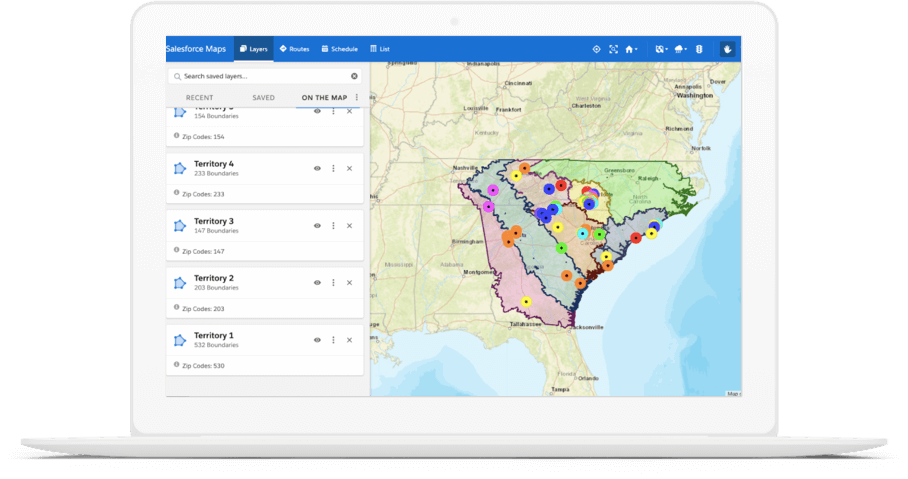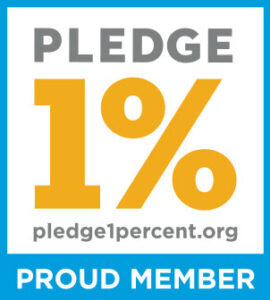Salesforce Maps is an area knowledge arrangement, the most ideal way to implant and utilize maps inside Salesforce, and to comprehend how your Salesforce Data is mapped geographically.
Salesforce Maps offers amazing area information perception, live area following, and course improvement.

Salesforce Maps Territory Planning
Territory Planning includes characterizing geographic regions so unambiguous reps/specialists know who they are liable for working with, whether that is records or people assuming they fall into the planned region doled out to them. The most widely recognized ways domains apply are:
- Sales Reps: Defines the accounts they are allowed to sell into. Geo is a common lead assignment rule criteria to route leads to the correct rep.
- Field Service: Defines the customers they could be dispatched to service.

Territory Planning has generally been a dreary and manual activity that channels time from project supervisors and deals with task groups. Organizations need to know the number of salespeople they need, and where, to drive income development (an essential estimation).
Developed with sales managers and operations teams in mind, new Territory Planning capabilities for 2022 include a clearer way to realign territories coverage based on multiple factors (eg. role, location, level of expertise, etc.).
The thought behind this release is that the get away from face-to-face offering to add half and a half or completely computerized commitment has added difficulty to the region configuration work out, in less complex terms, outreach groups presently do not simply sell inside the domains that they live and work.
How Salesforce Maps plan to solve this problem:
- Territory Planning for Digital Selling: Offers adaptability while working with an area arranging models, permitting a fast and simple area configuration that is reasonable for their reps, and that mirrors their deals cycle.
- Workload Variation: Factor in rep skill sets, status, and other limit imperatives while adjusting regions. This likewise helps recently added team members, who can find a good pace certainly when relegated to domains with diminished scope.
- Team Selling: Plan related domains to cultivate group joint effort and congruity across various jobs. Organizations can outwardly overlay a current region and anticipate top of a new or proposed plan (as opposed to the beginning without any preparation with each group, or quarter). For instance, adjusting a salesperson’s domain with an answer specialist’s region further develops cooperation and deals viability.
Salesforce Introduces Cool New Maps Feature
Layers: A Layer is an assortment of records that are plotted as area pins on the guide. The areas plotted to depend on the location data of a Salesforce record. You can flip layers on and off of the guide.

Shape Layers and Boundaries: Enables you to draw a circle on the guide that goes about as the limit, on the off chance that the records are inside the limit, they are incorporated. This is valuable for setting nearness corresponding to a focal point, eg. 5 km from the occasion setting. There are various ways of characterizing your limit, for instance, you could channel relying upon movement time, eg. Possibilities inside a 30-minute drive from the occasion scene.
Aggregate Data: Calculate the sum, average, min or max for the field data of records within your boundary, eg. the average score of individuals/accounts within that boundary.
Mass Actions: Actions you can make on the selected records (within the boundary). These include “Add to campaign”, “Add to route’”, “Follow on Chatter”.
Salesforce Maps Pricing
Salesforce Maps estimating begins at $75 for each client/month. The standard version accompanies course improvement and planning, Salesforce information perception, Lead auto-task, and versatile application access. To exploit need planning, and further Geo-Analytics, there is a high-level version you can move up to.




